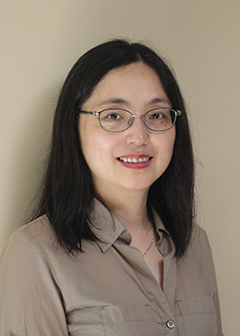Liwei Wang, PhD joined McWilliams School of Biomedical Informatics as an associate professor of the Center for Translational AI Excellence and Applications in Medicine (TEAM-AI) in June 2023. With a diverse background in informatics, medicine, pharmacology and public health, Dr. Wang has a strong focus on translating informatics solutions for cancer, precision medicine, mental health, and pharmacogenomics.
Throughout her career, Dr. Wang has engaged in extensive collaborations with clinicians, epidemiologists, and statisticians. She has served as a co-investigator and key investigator for multiple research grants from the National Library of Medicine (NLM) and the National Cancer Institute (NCI). Her involvement in these projects has allowed her to lead informatics initiatives and develop valuable resources, including lexicon, ontology and natural language processing algorithms, which have been successfully applied for large-scale information extraction and data mining. She utilizes various real-world data sources, such as Electronic Health Records (EHRs), FDA Adverse Event Reporting System (FAERS), to generate evidence, facilitating research excellence and practical applications.
- Tell us about your research center and/or what research you are currently working on?
The Center for Translational AI Excellence and Applications in Medicine (TEAM-AI) focuses on advancing translational sciences in data science, informatics, and artificial intelligence for medicine and healthcare, and aims to accelerate the digital transformation of medicine and healthcare through methodology innovation and team science collaboration.
My current work focuses on developing cohort identification and computational phenotyping algorithms, as well as resources and tools for generating real-world evidence by leveraging AI and informatics methodologies. This work aims to facilitate knowledge discovery, translation and implementation of AI techniques.
- What type of student or Postdoctoral Fellow are you looking for to work in your center?
Students who are self-motivated, and with background of AI, data science, and informatics techniques.
- What does the future of your research look like?
I envision that my research will empower clinical research, facilitate the translation of AI into practice, and ultimately improve patients’ quality of life.
- What does the future of informatics look like?
Informatics will draw more attention and play an indispensable role in health care within the context of an information society, not only in the medical domain. More relevant disciplines and experts will embrace informatics for collaboration and advancements in clinical excellence.
Education
- PhD, Medical Informatics, Jilin University, 2014
- MS, Library Science, Jilin University, 2006
- MD, Norman Bethune University of Medical Sciences, 1999
Areas of Expertise
- Information extraction and data mining
- Cancer informatics
- Mental health informatics
- Real-world evidence generation
- Biomedical lexicon, ontology, and semantics
- Computational phenotyping algorithms
- Adverse drug event surveillance
